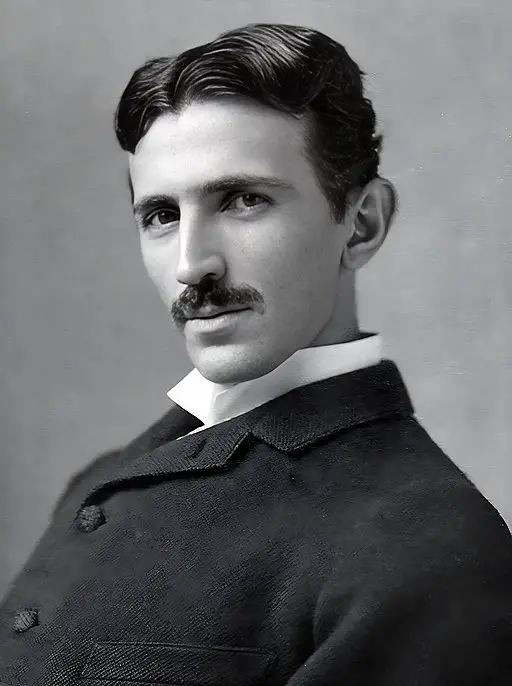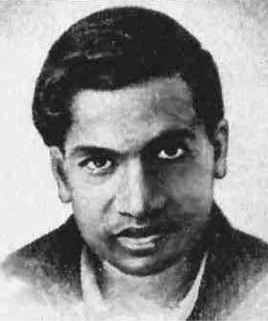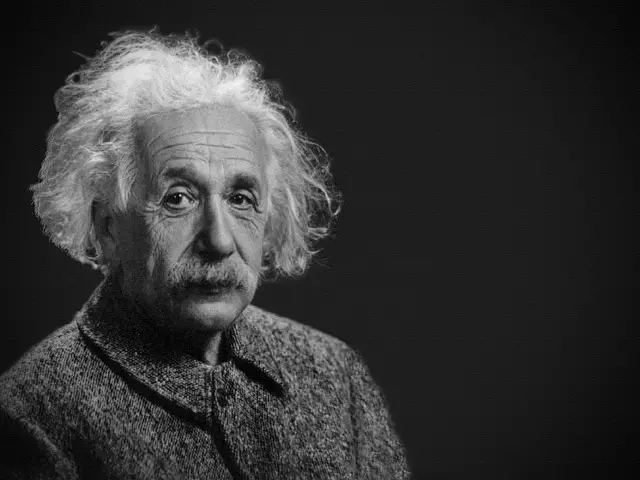A genius is exceptionally intelligent or skilled, often through learning and experience, while a prodigy displays exceptional talent or abilities from a very young age.
TL;DR Genius Vs. Prodigy
A Genius refers to individuals who possess extraordinary intellectual abilities. They demonstrate exceptional intelligence, creativity, problem-solving skills, and a deep level of expertise in their chosen field.
Geniuses often make groundbreaking contributions to their respective domains and are known for their remarkable accomplishments. They possess a keen ability to think critically and solve complex problems.
A Prodigy, on the other hand, refers to individuals who display exceptional talent or skill in a particular area at a young age. Prodigies exhibit remarkable proficiency or mastery beyond their years, often considered rare for someone of their age group.
Their abilities can manifest in various fields such as music, mathematics, art, or sports. Prodigies tend to demonstrate high levels of focus, dedication, and an innate aptitude for their chosen domain.
Understanding Genius and Prodigy
Genius and prodigy are often used to describe individuals with exceptional abilities, but there are distinct differences between the two:
- Definition of Genius: A genius is someone who demonstrates extraordinary intellectual or creative prowess in a particular field. They possess a high level of intelligence, innovative thinking, and are capable of producing remarkable work. Genius is often associated with achievements in areas such as science, mathematics, literature, or art.
- Definition of Prodigy: A prodigy, on the other hand, is a person who exhibits exceptional talent or skill at a young age. Prodigies typically display remarkable abilities in areas such as music, sports, mathematics, or chess early in their lives, often before the age of 10. Their talent is advanced beyond their years and may require minimal formal training to excel.
- Development of Genius: Genius is often the result of a combination of natural aptitude, intense dedication, and extensive study or practice. While some individuals may show early signs of exceptional abilities, genius is typically developed over time through continuous learning and honing of skills.
- Development of Prodigy: Prodigies, on the other hand, demonstrate exceptional talent at a very young age, seemingly surpassing their peers without extensive training. Their abilities may be innate, but prodigies still require guidance, mentorship, and nurturing to fully develop and reach their potential.
- Scope of Abilities: Genius tends to encompass a broader range of intellectual or creative abilities. A genius may excel in multiple areas or demonstrate exceptional versatility within their chosen field. Prodigies, while exceptional in their specific talent or skill, may not necessarily exhibit the same breadth of abilities as a genius.
- Age of Achievement: Genius often emerges and is recognized later in life, as it requires years of dedicated study, practice, and experience. Prodigies, on the other hand, gain attention and recognition at a young age due to their exceptional abilities.
While both genius and prodigy represent extraordinary capabilities, the distinction lies in the age at which the talents manifest, the breadth of abilities, and the developmental process. Understanding these differences helps to appreciate and acknowledge the unique qualities of individuals who demonstrate exceptional skills and capabilities.
Defining Genius
Genius is a term used to describe individuals who demonstrate exceptionally high levels of intelligence, creativity, and problem-solving abilities in a particular domain. Here are key characteristics that define a genius:
- Exceptional Intellectual Ability: Geniuses possess extraordinary intellectual capabilities and often display advanced cognitive skills, such as exceptional memory, rapid information processing, and high levels of abstract thinking.
- Remarkable Creativity: Geniuses demonstrate exceptional creative thinking and originality. They are able to generate unique ideas, think outside the box, and make innovative connections between different concepts.
- Deep Knowledge and Expertise: Geniuses typically have a deep understanding and mastery of their chosen field or fields. They acquire extensive knowledge through intense focus, extensive study, and continuous learning.
- High Achievement: Geniuses often achieve notable accomplishments and make significant contributions to their field. They may produce groundbreaking works, invent revolutionary technologies, or make discoveries that have a profound impact on society.
- Unconventional Thinking: Geniuses tend to challenge conventional wisdom and question established norms. They are not afraid to take risks, explore new ideas, and challenge existing paradigms.
- Intense Passion and Drive: Geniuses often display a deep passion and relentless drive for their chosen field. They exhibit exceptional motivation, determination, and perseverance, allowing them to overcome obstacles and achieve extraordinary results.
- Exceptional Problem-Solving Skills: Geniuses excel at solving complex problems and finding innovative solutions. They possess strong analytical abilities, logical reasoning skills, and the capacity to think critically.
- Domain-Specific Talent: Geniuses usually specialize in a particular area or discipline, such as mathematics, music, art, science, or literature. They demonstrate exceptional talent and expertise in their chosen domain.
It’s important to note that the term “genius” is subjective and can vary across different contexts and perspectives. Some individuals may be considered geniuses in specific domains while not exhibiting exceptional abilities in others.
What Are the Characteristics of a Genius?
- Above-average intelligence: Geniuses typically have a high level of intellectual capacity, often with an IQ score above 140.
- Exceptional problem-solving skills: They have the ability to think critically and creatively, finding innovative solutions to complex problems.
- Deep knowledge in specific areas: Geniuses often have a deep passion for a particular subject or field and possess extensive knowledge and expertise in that area.
- Rapid learning ability: They have a remarkable ability to grasp and understand new concepts quickly, allowing them to excel in various disciplines.
- Intense curiosity and desire for knowledge: Geniuses have a natural inclination to explore and seek answers to their questions relentlessly.
- Eccentricities and unconventional thinking: They often think outside the box and challenge traditional ideas, demonstrating unique perspectives and unconventional approaches.
- Strong focus and concentration: Geniuses are known for their ability to concentrate intensely on a task, shutting out distractions and maintaining high levels of productivity.
- Exceptional memory: They often possess excellent memory capabilities, remembering vast amounts of information with ease.
- Highly creative: Geniuses tend to have a strong imagination and can come up with original ideas and concepts.
- Excellent problem-solving skills: They have a talent for recognizing patterns, making connections, and solving complex problems in various domains.
What Are Some Famous Examples of Geniuses?

Some famous examples of geniuses, such as Albert Einstein, Leonardo da Vinci, and Isaac Newton, serve as a testament to the heights human intellect can reach. These individuals are renowned for their exceptional intellectual abilities and significant contributions to their respective fields.
Albert Einstein, considered one of the greatest physicists of all time, developed the theory of relativity, which revolutionized our understanding of space, time, and gravity. His iconic equation, E=mc², is still widely recognized and celebrated today.
Leonardo da Vinci, known as the epitome of a Renaissance man, was a brilliant artist, inventor, scientist, and polymath. His famous artworks, including the Mona Lisa and The Last Supper, continue to captivate audiences worldwide.
Isaac Newton, a mathematician and physicist, formulated the laws of motion and gravity, laying the foundation for classical mechanics. His work profoundly influenced scientific thought and paved the way for future breakthroughs in physics.
These geniuses not only possessed exceptional abilities but also demonstrated a relentless drive and passion for their craft. Their groundbreaking discoveries and accomplishments continue to inspire and shape our understanding of the world.
Their immeasurable contributions have left a lasting impact on society and continue to be celebrated and studied today.
Defining Prodigy
A prodigy is an individual who demonstrates exceptional talent or skill in a particular field at a young age. Here are key characteristics that define prodigies:
- Early Mastery: Prodigies display a remarkable level of mastery or expertise in their chosen field at a young age, often surpassing the abilities of their peers or even adults.
- Natural Aptitude: Prodigies possess an innate talent or aptitude for their area of expertise. They demonstrate exceptional abilities without extensive training or formal education.
- Rapid Skill Acquisition: Prodigies have an accelerated rate of learning and skill development. They quickly grasp complex concepts, techniques, or skills in their field of interest.
- Originality and Creativity: Prodigies often exhibit a high degree of originality and creativity in their work. They may innovate, create new approaches, or develop unique ideas within their domain.
- Intense Focus and Dedication: Prodigies display intense focus, dedication, and passion for their chosen field. They invest significant time and effort into honing their skills and pursuing their interests.
- Exceptional Memory: Many prodigies possess an exceptional memory, allowing them to retain and recall vast amounts of information related to their area of expertise.
- Advanced Problem-Solving: Prodigies often demonstrate advanced problem-solving abilities. They can analyze complex problems, apply their knowledge, and generate innovative solutions.
- Recognition and Achievements: Prodigies receive recognition and achievements early in their lives due to their exceptional talents. They may win prestigious awards, gain media attention, or be acknowledged by experts in their field.
- Continued Development: Prodigies continue to develop and refine their skills as they grow older. They may pursue higher education, collaborate with mentors, or contribute to their field through research or professional work.
Prodigies are rare individuals who exhibit extraordinary abilities and potential in their early years, captivating the world with their talent and leaving a lasting impact in their chosen field.
What Are the Characteristics of a Prodigy?
The term “prodigy” refers to individuals who display exceptional abilities and talents in specific areas such as music, art, mathematics, or sports at a young age. There are several common traits that often define these remarkable individuals:
- Exceptional abilities: Prodigies exhibit remarkable skills or talents in their chosen field at a young age.
- Early signs of talent: Prodigies often show signs of their extraordinary abilities from a very early age, sometimes as young as toddlers.
- Intense drive and passion: Prodigies have an intense passion and drive for their craft, demonstrating an incredible focus and dedication.
- Rapid skill acquisition: Prodigies possess the ability to acquire and master new skills at an accelerated pace, displaying a natural aptitude for learning.
- High levels of creativity: Prodigies demonstrate innate creativity and originality in their work, constantly pushing boundaries and revolutionizing their respective fields.
A famous example of a prodigy is Wolfgang Amadeus Mozart, who began composing music at the age of five and went on to become one of the greatest composers of all time. Another notable prodigy is Pablo Picasso, who displayed exceptional artistic talent from a young age and became one of the most influential artists of the 20th century.
Understanding the characteristics of a prodigy is crucial in recognizing and nurturing their talents from an early age. By providing them with the necessary support and resources, we can help prodigies reach their full potential and make significant contributions to their chosen fields.
What Are Some Famous Examples of Prodigies?

Here are a few well-known prodigies:
- Wolfgang Amadeus Mozart – Mozart, a renowned composer and musician, displayed exceptional talent from a young age. At eight years old, he composed his first symphony and went on to create numerous famous works.
- Pablo Picasso – Picasso, a prodigious artist, demonstrated incredible talent and creativity from a young age. He revolutionized the art world with his unique and innovative approach, mastering various artistic styles and techniques.
- Blaise Pascal – Pascal, a brilliant mathematician, physicist, and philosopher, made significant contributions to multiple fields. He invented the first mechanical calculator, developed the principles of probability theory, and formulated important theorems in geometry.
- Marie Curie – Curie, a remarkable scientist, made groundbreaking discoveries in the field of radioactivity. She became the first woman to win a Nobel Prize and the only person to win Nobel Prizes in two different scientific fields.
- Tiger Woods – Woods, a professional golfer, achieved phenomenal success from a young age. He became the youngest player to win the Masters Tournament at 21 years old and went on to dominate the world of golf, winning numerous championships.
These individuals exemplify the exceptional abilities and early signs of talent seen in prodigies. They demonstrated a drive and passion for their respective crafts, propelling them to achieve greatness in their fields. Their remarkable skills and achievements have left a lasting impact and inspired future generations.
Key Differences Between Genius and Prodigy
1. Age of Manifestation
The age of manifestation, also known as the age at which exceptional abilities and talents of a genius or prodigy become evident, varies for each individual and talent. Typically, geniuses display their exceptional abilities at an early age, often during childhood or adolescence. Some geniuses showcase remarkable intellectual capabilities, such as advanced problem-solving skills or exceptional memory, at a very young age. For instance, the renowned mathematician and physicist Albert Einstein demonstrated exceptional mathematical abilities during his early twenties, when he published his groundbreaking theories.
Similarly, prodigies exhibit their extraordinary talents at a young age, but their abilities are more focused on specific areas such as music, art, or sports. Prodigies often demonstrate exceptional skills and proficiency in their chosen field from a very early age, sometimes as young as three or four years old. A notable example is Wolfgang Amadeus Mozart, who composed music and performed at royal courts as a child prodigy.It is crucial to note that the age of manifestation is influenced by factors like genetic predisposition, early exposure to the domain of talent, and opportunities for practice and nurturing. While some geniuses and prodigies display their exceptional abilities early in life, others may develop and showcase their talents later on.Understanding the age of manifestation plays a vital role in recognizing and supporting the development of exceptional abilities in geniuses and prodigies. By identifying and nurturing these talents at an early age, we can provide the necessary resources and opportunities for individuals to further enhance their skills and make significant contributions to their respective fields.
2. Versatility of Skills
- Geniuses are renowned for their versatility of skills. They excel in multiple domains and possess a wide range of abilities.
- They can demonstrate high proficiency in fields such as mathematics, science, music, art, and literature.
- One remarkable aspect of geniuses is their ability to transfer their knowledge and skills from one domain to another, often establishing innovative connections and making valuable contributions.
- These exceptional individuals are not confined to a single area of expertise; rather, they showcase expertise in a variety of fields.
- For instance, Leonardo da Vinci was not only an extraordinary painter but also an inventor, engineer, and scientist.
- Geniuses thrive on intellectual challenges and continuously seek novel ways to expand their knowledge and skills.
- They are renowned for pushing boundaries and thinking outside the box, frequently devising unconventional solutions to problems.
- Geniuses possess remarkable adaptability and can effectively apply their skills in different contexts and situations.
- They have an innate curiosity and a strong desire to learn, enabling them to master diverse areas of study.
- Geniuses are not constrained by the limitations of one field; instead, they utilize their versatile skills to make groundbreaking contributions across various domains.
3. Emotional and Social Development
When it comes to the emotional and social development of geniuses and prodigies, there are several key aspects to consider:
Emotional and social development: Both geniuses and prodigies tend to exhibit advanced emotional intelligence and maturity at a young age. They often demonstrate a better understanding and regulation of their emotions compared to their peers.
- Interpersonal skills: While geniuses may encounter challenges in social interactions due to their intense focus on intellectual pursuits, prodigies usually excel in social situations. They are able to connect with others through their exceptional talents and often find support and validation within their respective fields.
- Peer relationships: Geniuses may struggle to relate to their peers and find like-minded individuals who share their passions and interests. On the other hand, prodigies are more likely to discover peers who can comprehend and appreciate their talents, resulting in deeper friendships.
- Influence of family dynamics: The emotional and social development of geniuses and prodigies can be affected by their family environment. Supportive and nurturing families can help cultivate their talents and offer the necessary guidance and resources for their growth.
Pro-tip: Providing geniuses and prodigies with a balanced environment that fosters both intellectual and emotional development is crucial. Encouraging social interactions, offering mentorship, and nurturing their interests can contribute to their overall well-being and success.
4. Rate of Skill Acquisition
The rate of skill acquisition is an important factor when differentiating between geniuses and prodigies. Here are some key points to consider:
- Geniuses demonstrate a rapid rate of skill acquisition, often mastering complex concepts or skills at an early age. This accelerated learning allows them to surpass the abilities of their peers.
- Prodigies, on the other hand, also exhibit a remarkably fast rate of skill acquisition. They show exceptional talent and progress quickly in a specific field, such as music, mathematics, or art.
- Both geniuses and prodigies possess an innate ability to grasp new ideas and techniques swiftly. Their exceptional learning speed sets them apart from average individuals.
- The rate of skill acquisition can vary depending on the domain. For example, a genius in mathematics may acquire skills faster in that field compared to a prodigy in music.
It is worth noting that the rate of skill acquisition is influenced by various factors, including innate ability, motivation, access to resources and training, and supportive environments.
The rate of skill acquisition is a distinguishing factor between geniuses and prodigies. While both demonstrate exceptional abilities, geniuses showcase a broader range of skills, whereas prodigies excel in a specific domain at an accelerated pace.
Similarities Between Genius and Prodigy
In exploring the fascinating realm of extraordinary talents, we will uncover the intriguing similarities between geniuses and prodigies. From exceptional abilities to early signs of talent and an unwavering drive for their craft, this section opens the door to understanding the shared traits that set these remarkable individuals apart. So, let’s dive into the realm of exceptional human potential and unravel the connections between genius and prodigy.
1. Exceptional Abilities
When examining the sub-topic of “Exceptional Abilities” in the context of geniuses and prodigies, it is important to highlight the outstanding skills and talents that individuals in these categories possess. A comparison table can be used to illustrate the differences in their abilities.
| Genius | Prodigy |
| A genius demonstrates exceptional intellectual capabilities across various domains, such as mathematics, music, art, or science. | A prodigy showcases exceptional skills or talent in a specific area at a young age. |
| Geniuses exhibit advanced problem-solving skills, creativity, and the ability to think critically. | Prodigies possess remarkable proficiency in a particular field, surpassing their peers, and often display exceptional memory and technical abilities. |
| Genius abilities are usually evident in multiple areas and can be applied to various disciplines. | Prodigies tend to excel in a single area and may have limited expertise outside of their specific domain. |
| Genius abilities are often developed over time, with a focus on cultivation and enhancement. | Prodigy abilities are typically innate and manifest at an early age without extensive training. |
Understanding the exceptional abilities of both geniuses and prodigies helps recognize their unique talents and contributes to our comprehension of human potential in various fields.
2. Early Signs of Talent
Early signs of talent in individuals who eventually become geniuses or prodigies can often be observed from a young age. These signs indicate their exceptional abilities and potential for greatness in their respective fields. Here are some early signs of talent:
- Curiosity: Geniuses and prodigies often display an insatiable curiosity about the world around them. They ask questions, explore, and seek knowledge from a young age.
- Rapid learning: They show a remarkable ability to learn and master new skills quickly. Whether it’s playing an instrument, solving complex math problems, or learning multiple languages, they grasp concepts faster than their peers.
- Intense focus: They have the ability to concentrate for extended periods, immersing themselves in their chosen area of interest. This exceptional focus allows them to delve deeply into subjects and refine their skills.
- Exceptional memory: Geniuses and prodigies often demonstrate exceptional memory capabilities. They can easily recall vast amounts of information and make connections between seemingly unrelated ideas.
- Early achievement: These individuals achieve feats well beyond their years. Whether it’s winning competitions, publishing works, or performing at advanced levels, their accomplishments at a young age set them apart.
It’s important to note that early signs of talent do not guarantee that someone will become a genius or prodigy. Nurturing and support, as well as a conducive environment, play significant roles in developing and fostering their exceptional abilities.
Fact: Mozart, one of the most famous prodigies in history, composed his first musical piece at the age of five.
3. Drive and Passion for Their Craft
When it comes to genius and prodigy, one key similarity is their drive and passion for their craft. Both geniuses and prodigies demonstrate an intense motivation and dedication to their chosen field.
Geniuses often possess an insatiable curiosity and a relentless desire to explore and innovate. Their drive and passion for their craft pushes them to constantly push boundaries and challenge conventional wisdom. For example, Albert Einstein’s passion for physics led him to develop the theory of relativity, reshaping our understanding of the universe.
Similarly, prodigies exhibit an exceptional level of commitment and enthusiasm for their craft from a young age. Whether it is a child violinist practicing for hours each day or a chess prodigy studying the game relentlessly, their drive and passion for their craft propels them to achieve greatness. Take, for instance, Mozart, who composed his first symphony at the age of eight, showcasing his unwavering passion and dedication to music.
In both cases, this drive and passion for their craft are crucial factors in their exceptional achievements. It fuels their motivation to hone their skills, embrace challenges, and strive for excellence. Without this inner fire, geniuses and prodigies may not have been able to reach the extraordinary levels of success they have attained.
So, whether it’s a genius like Leonardo da Vinci or a prodigy like Serena Williams, their drive and passion for their craft play a significant role in propelling them towards greatness.
Pro-tip: If you want to cultivate your own drive and passion for a particular field, immerse yourself in it completely. Surround yourself with like-minded individuals, seek opportunities for growth and learning, and never be afraid to pursue your passions wholeheartedly.
Frequently Asked Questions
What’s the difference between genius and prodigy?
Genius and prodigy are both terms used to describe individuals with high intelligence and exceptional abilities. A genius surpasses others in terms of intellectual and creative capacities, often breaking away from traditional ways of thinking and being associated with originality. On the other hand, a prodigy displays exceptional skills in a specific field at a young age, usually below 18, and has the mastery of an adult in that field.
Can a prodigy be considered a genius?
While a prodigy may possess exceptional skills at a young age, it doesn’t necessarily make them a genius. A prodigy’s abilities may rely on innate talents or environmental factors, whereas a genius is known for their originality and creating new knowledge. Therefore, the terms genius and prodigy have different meanings and are not identical.
What are some examples of geniuses?
Notable examples of geniuses include Albert Einstein and Francis Galton. Einstein revolutionized physics and is widely recognized for his contributions to the theory of relativity, while Galton, known as the founder of psychometry, made lasting influence in the fields of psychology and statistics.
Can a prodigy excel in various fields?
Yes, prodigies have the ability to excel in various fields such as mathematics, chess, dancing, and art. Their exceptional skills are not limited to a specific area, and they often display mastery beyond what is expected for their age.
Is a high IQ score a requirement for being a prodigy?
No, a high IQ score is not necessarily a requirement for being a prodigy. While gifted individuals typically have an IQ score at or above the 98th percentile of the adult population, prodigies can possess exceptional skills even without an extremely high IQ. Their abilities can be a result of both innate talents and environmental influences.
Do geniuses and prodigies have the same age limitations?
No, there is a key difference in age limitations between geniuses and prodigies. A genius is not confined to a specific age and can be of any age, while a prodigy specifically refers to children or individuals below 18 who display exceptional skills in a specific field.
Image Credits
Featured Image By – Jackie Ramirez from Pixabay
Image 1 By – Napoleon Sarony, Public domain, via Wikimedia Commons
Image 2 By – UnknownUnknown, Public domain, via Wikimedia Commons








